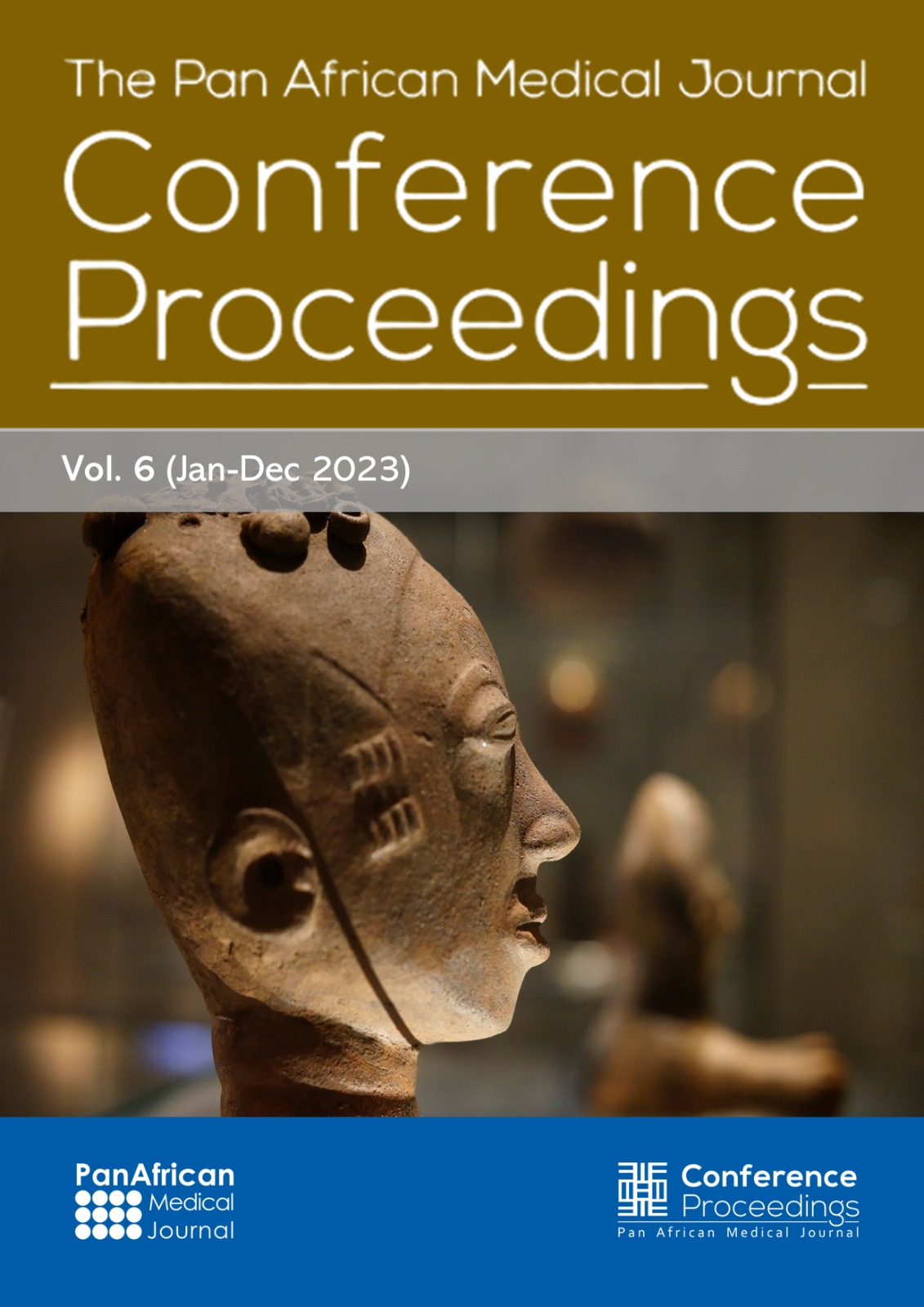Conference abstract
Health education strategies in enhancing rabies control and prevention in Ifelodun Local Government Area of Kwara State Nigeria
Pan African Medical Journal - Conference Proceedings. 2019:10(8).12
Mar 2019.
doi: 10.11604/pamj-cp.2019.10.8.815
Archived on: 12 Mar 2019
Contact the corresponding author
Keywords: Rabies, prevention, health education, strategies
Oral presentation
Health education strategies in enhancing rabies control and prevention in Ifelodun Local Government Area of Kwara State Nigeria
Rosemary Nwoha1,&, Julius Aiyedun2, Oladapo Oludairo2
1Department of Veterinary Medicine, Michael Okpara University of Agriculture, Umudike, Abia State, Nigeria, 2Department of Veterinary Public Health and Preventive Medicine, Faculty of Veterinary Medicine, University of Ilorin, Ilorin, Nigeria
&Corresponding author
Rosemary Nwoha. Department of Veterinary Medicine, Michael Okpara University of Agriculture, Umudike, Abia State, Nigeria
Introduction: the rate at which cases of rabies are reported in the news media and suspected cases are presented at veterinary clinics and human hospitals in Kwara State of Nigeria calls for critical attention. Although rabies is a highly dreaded disease, yet public awareness and knowledge of its risk factors and exposure management appear to remain poor in rural areas of Nigeria. The objective of the study was to evaluate the impact of rabies campaign on the uptake of anti-rabies vaccination by pet owners in a local community.
Methods: an anti-rabies campaign was carried out in Ifelodun Local Government Area of Kwara State, Nigeria from April 2016 to June 2016 by a group of veterinarians. Public address system was used to communicate messages on source and biological nature of rabies, and what to do when exposed. Youths and adults in schools, worship centres (including Churches and Mosques), market areas, town halls and community centers were administered a follow-up questionnaire survey before and after the outreach to capture data on knowledge of rabies, its risk factors, and anti-rabies vaccination uptake.
Results: the results were summarized and indicated that public awareness indices improved after the intervention and anti-rabies vaccination for dogs increased.
Conclusion: this study revealed that awareness creation through public educational campaigns is a very useful approach to improving vaccination compliance for pets by pet owners in the local community. It is recommended that animal health authorities should support regular anti-rabies campaign and offer subsidy on anti-rabies vaccine for domestic animals in rural areas of Nigeria.








